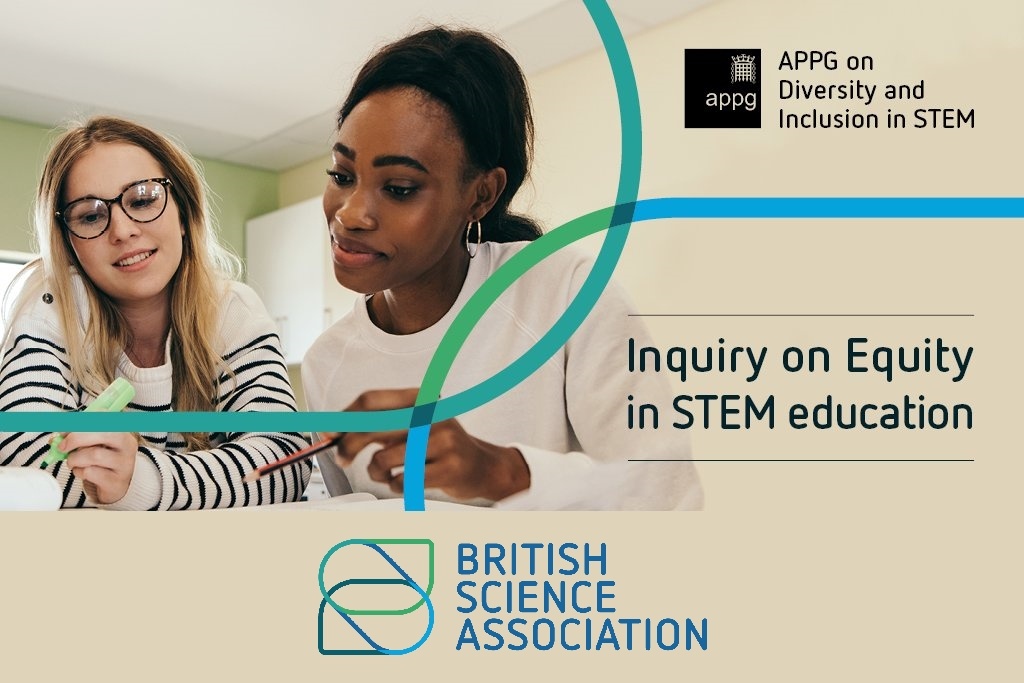Inequity in STEM education starts from the age of 3

A new report from the All-Party Parliamentary Group (APPG) on Diversity and Inclusion in Science, Technology, Engineering and Maths (STEM), shows that inequity in STEM education starts from the age of 3. Chi Onwurah MP, Chair of the APPG on Diversity and Inclusion in STEM, said: “The recent global protests on inequality have only further served to highlight that we must continually review the systems we have in place to ensure they are fit for purpose. Nowhere is this clearer than in STEM education."
“I am pleased to launch the APPG on Diversity and Inclusion in STEM’s first report on the incredibly important topic of equity in STEM education. Our report shows that whatever the socio-economic background, from the age of three onwards, children are currently suffering from the levels of inequity in STEM education. "
Entitled “Equity in STEM Education”, the report highlights the need for a more joined-up approach by Government to tackle the causes of inequity in the education system. The inquiry focused on equity, because of evidence that treating everyone equally within education provides unequal outcomes, as it assumes all young people begin in similar circumstances.
During their research, the APPG found the current education system fails to provide needs-based learning opportunities in STEM education to all students (3-19) in England. The lack of a joined-up Government approach, schools’ role in GCSE option selection and a lack of access to good careers education were part of several factors contributing to the inequity in the system.
Recommendations of the Inequity in STEM Education Report
Based on these findings the APPG has made six recommendations, with parliamentarians calling on the Government to introduce:
- A Minister responsible for addressing inequity within the education system
- STEM education that is more relevant to the lives of all young people
- Greater action to address teacher shortages in STEM subjects
- Fully implement changes to careers support and guidance suggested by the Careers Strategy for England (2017)
- Steps to address the existing inequalities in provision of Double Award and Triple Science at GCSE
- A review of fundamental changes to STEM GCSEs which considers equity issues
“The report contains new ideas and solutions that can help more young people build their skills and raise their aspirations. It is my hope that the Government looks closely at the recommendations in the report. Addressing the current inequity in STEM education now will pay dividends, as the next generation go on to plug the current STEM skills gap, ensuring the UK continues to be a world leader in scientific and technological innovation," added Chi, who graduated from Imperial College London with an Electrical Engineering degree in 1987 and she had a career in engineering and technology before entering parliament.
Shortage of STEM Skills costs UK Plc £1.5bn per year
The question of under-representation of certain demographics within STEM industries and academia is one that has challenged policy-makers and businesses for years. Tapping into missing talent and reducing the numbers of children who experience inequity is important to meet the skills challenges of the future. The evidence from the National Audit Office suggests there is a mismatch between the STEM skills needed and those available in the UK. According to STEM Learning, the shortage of STEM skills in a number of important sectors has been estimated to cost businesses £1.5bn per year.
Widening the talent pool is key to UK's economic success
In the current context of the Black Lives Matter protests, historically weak productivity, the UK’s recent departure from the EU, environmental challenges and the COVID-19 pandemic , the report found a clear need to widen the talent pool by improving diversity within the pipeline of STEM candidates, which would make a substantial contribution to reducing skills shortages. While some limited progress has been made, further improvements would help alleviate what many see as one of the UK’s key economic, societal and ethical problems.
Click here to download a copy of the Inquiry on Equity in STEM education Report.
About the APPG on Diversity & Inclusion in STEM
The APPG on Diversity and Inclusion in STEM, chaired by Chi Onwurah MP, was formed in 2018 and is a cross-party group dedicated to promoting the inclusion and progression of people from underrepresented backgrounds in STEM. The group has over 20 members and officers from across parties and both Houses. The APPG, for which the British Science Association acts as secretariat, also aims to consider and influence changes in policy that lead to these outcomes.
The Group is sponsored by: Drax, Institute of Physics, Oxford Cambridge and RSA, PWC, Royal Academy of Engineering, Royal Society of Chemistry, Society for Applied Microbiology, The Francis Crick Institute, The Institution of Engineering and Technology, The Physiological Society, The Tech She Can Charter, Trainline, UCL.
For further information visit https://www.britishscienceassociation.org/appg




